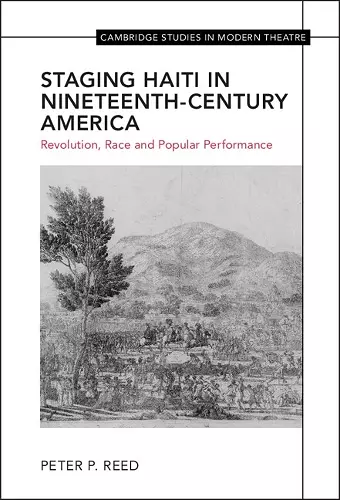Staging Haiti in Nineteenth-Century America
Revolution, Race and Popular Performance
Format:Hardback
Publisher:Cambridge University Press
Published:1st Dec '22
Currently unavailable, and unfortunately no date known when it will be back
This hardback is available in another edition too:
- Paperback£22.99(9781009113182)

Peter P. Reed reveals how nineteenth-century American theatre and performance reckoned with Haiti's courageous enactments of Black freedom.
Peter P. Reed examines the meanings of Haiti in America's nineteenth-century popular performance. Plays, social performances, and literary narratives of Haiti's revolutionary slave revolts transformed racial revolution into popular entertainments and diversions, dramatizing themes of race, freedom, and power in ways that remain impactful today.American culture maintained a complicated relationship with Haiti from its revolutionary beginnings onward. In this study, Peter P. Reed reveals how Americans embodied and re-enacted their connections to Haiti through a wide array of performance forms. In the wake of Haiti's slave revolts in the 1790s, generations of actors, theatre professionals, spectators, and commentators looked to Haiti as a source of both inspiring freedom and vexing disorder. French colonial refugees, university students, Black theatre stars, blackface minstrels, abolitionists, and even writers such as Herman Melville all reinvented and restaged Haiti in distinctive ways. Reed demonstrates how Haiti's example of Black freedom and national independence helped redefine American popular culture, as actors and audiences repeatedly invoked and suppressed Haiti's revolutionary narratives, characters, and themes. Ultimately, Haiti shaped generations of performances, transforming America's understandings of race, power, freedom, and violence in ways that still reverberate today.
ISBN: 9781009100526
Dimensions: 235mm x 160mm x 18mm
Weight: 480g
231 pages